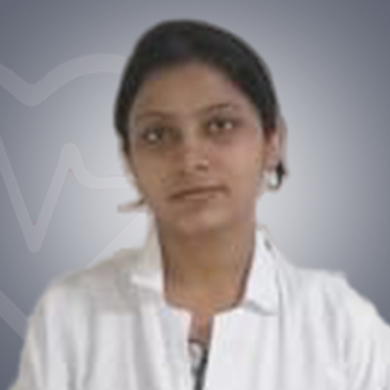
Opthalmologist
Manipal Hospital, Gurugram , Gurgaon, India10 Years of experience
Speaks: English
One of the eminent ophthalmologists, Dr Nidhi Chopra treats a variety of conditions with high success rates. The conditions treated are as follows::
Diabetic Retinopathy, Dry eye Syndrome, and Conjunctivitis are common eye conditions treated by ophthalmologists. The treatment for dry eye is based on the suggestion of an ophthalmologist Treatment options may include proper dieting, medications, and surgery. Some treatments for drye eyes focus on reversing a condition that's causing your dry eyes.
Eye conditions can produce different symptoms and these can differ from person to person. Some of the signs and symptoms of different types of eye conditions include:
Routine eye exams are the best way to avoid any vision problems. In case you did not have an eye exam for more than a year, you should schedule a visit with your eye doctor. Being aware of some warning signs can help you take the required steps for the health of your eyesight, especially if the vision symptoms appear suddenly. In most cases, detached retina and onset of glaucoma, quick intervention is required to minimize the permanent vision loss.
Dr Nidhi Chopra is available for consultation between 10 am and 5 pm. The average working hours of the doctor are 47 hours a week.
Some of the popular procedures performed by Dr Nidhi Chopra are listed below:
LASIK (Laser in Situ Keratomileusis) uses a laser to reshape the cornea. This procedure uses a certain laser designed to treat vision issues, improve vision, and also reduce the need for glasses and contact lenses. The laser alters the shape of your cornea.

Share Your Experience about Dr. Nidhi Chopra

An ophthalmologist is a medical doctor who is trained in vision and eye care. Ophthalmologists are different from optometrists and opticians because of their different levels of training and the conditions they diagnose and treat. Some ophthalmologists work closely with other medical experts to provide care for chronic eye conditions. If you have an eye problem such as cataracts or any other conditions that would require surgical treatment, an ophthalmologist is a suitable doctor to address your problem. Though an ophthalmologist generally treats eye-related problems, they may also offer consultation for conditions that are not linked to the eyes. They also take part in scientific research to find new treatment methods.
Some of the most common test performed for the diagnosis of eye conditions are:
There are several eye conditions and each of them produces different signs and symptoms. An opthalmologist will perform a series of tests to find out the eye problem. An eye exam helps find out eye problems at the earliest stage. Also, regular eye checkups help your eye specialist to correct or adapt to vision changes and provide you tips on eye care.
Some of the signs you need to visit an ophthalmologist include:
The above-listed signs and symptoms signal that you need to consult an eye specialist who will diagnose the condition and start suitable treatment. They may tell you to undergo a number of eye tests to diagnose the condition. They also talk to other specialists about your condition and will start the best treatment.